The Carlin House
First Floor
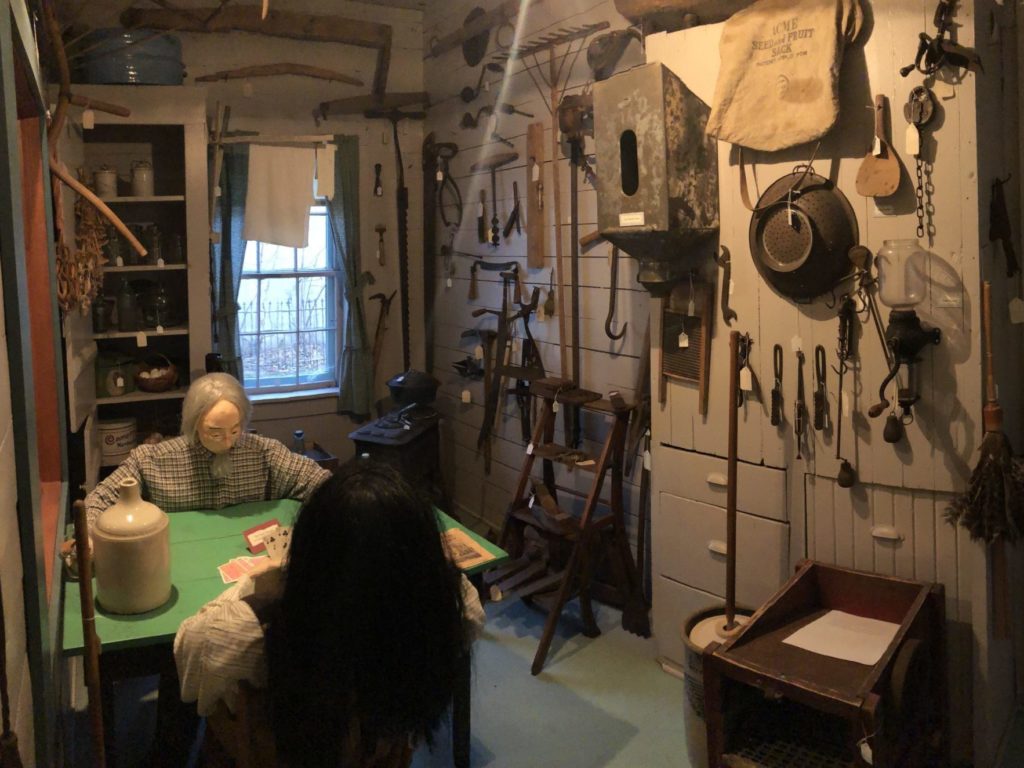
FOYER
A wide variety of farm and household items, two men playing a friendly game of cards.
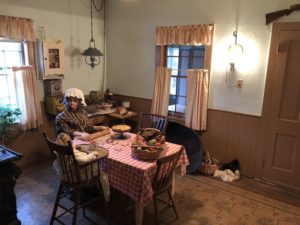
SUMMER KITCHEN
Complete with stove, pump, boiler, utensils, and homemade jam being conspicuously consumed by a young child.
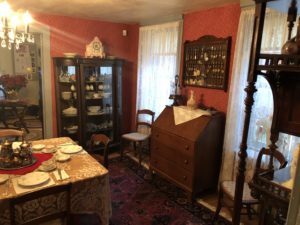
DINING ROOM
Fine china, cabinetry, articles from the Carlin and other Palmyra families.
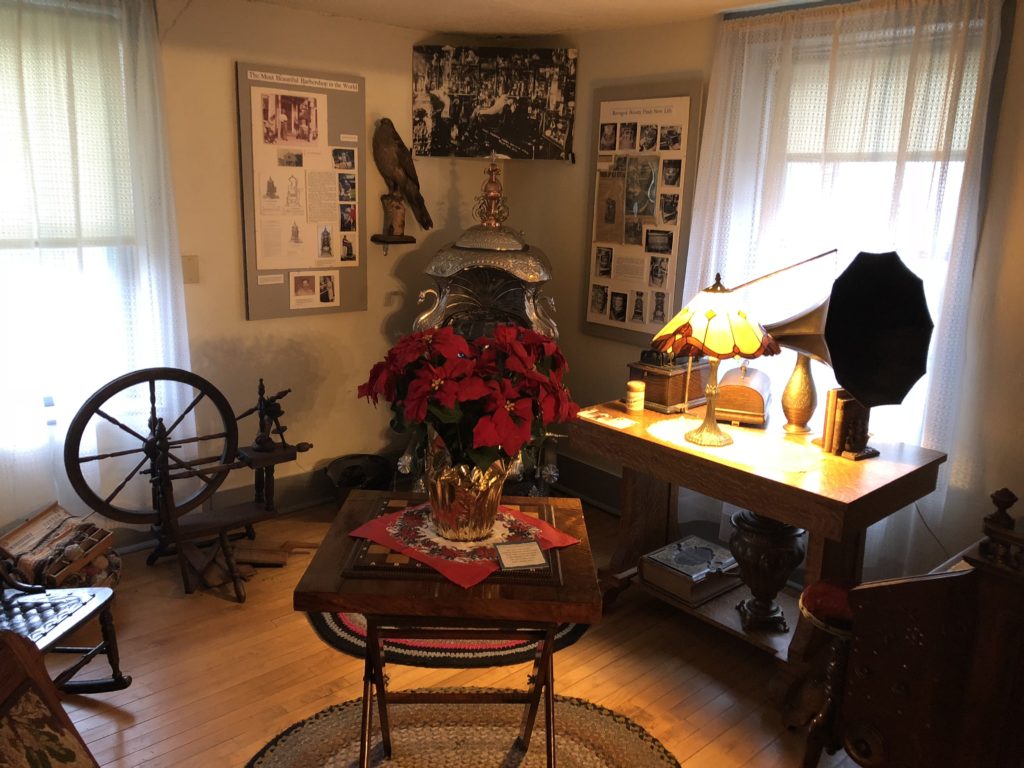
MUSIC ROOM
Not originally for music but containing an Edison cylinder phonograph, carved wooden organ, restored coal stove from a local barbershop, many other antiques.

PARLOR
Original or near-original furnishings, Carlin and Turner family photos, “paper punch” embroidery, tiny mittens knitted with toothpicks, “stereoscope” for viewing photographs in 3-D.
Second Floor
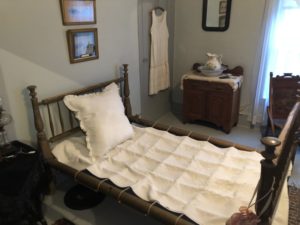
GRANDMA’S BEDROOM
Rope net bed supporting a “tic” mattress, many other antiques.
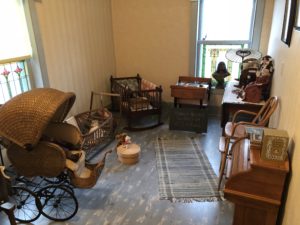
CHILDREN’S ROOM
Dolls, books, cradles, family bathtub.
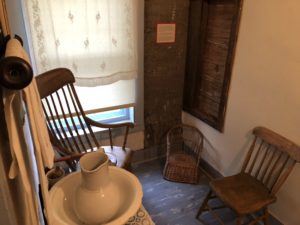
GROUT ROOM
Opening on inside wall shows grout construction of the house.
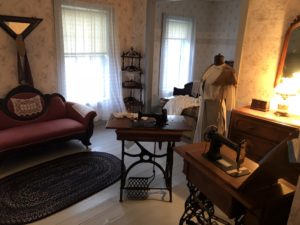
SEWING ROOM
Early sewing machines, shoes, women’s clothing on mannequins and in closets, chests, cabinets, jewelry boxes, etc.
